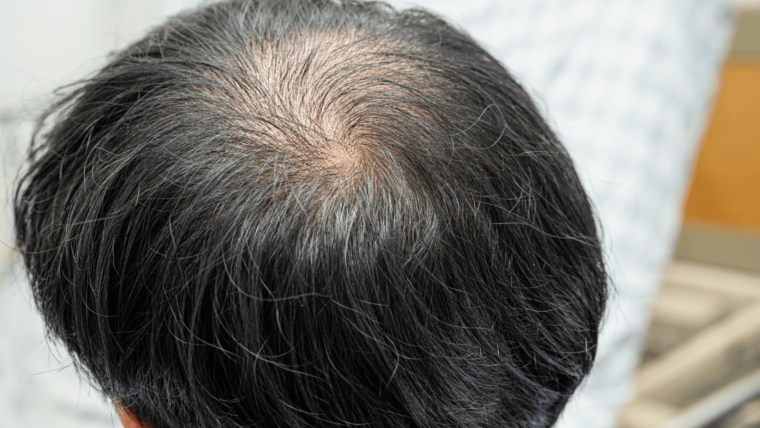Updated October 2025
We are living in an extraordinary era of medical advancement. From breakthrough cancer immunotherapies to revolutionary treatments for rare genetic diseases, the pace of scientific discovery continues to accelerate. Behind every medical breakthrough that reaches patients lies a critical foundation: clinical trials. As a board-certified dermatologist who has witnessed firsthand how clinical research transforms patient care, I want to share why clinical trials matter and how they might benefit you or your loved ones.
Understanding Clinical Trials: The Foundation of Modern Medicine
Clinical trials are carefully designed research studies that evaluate new treatments, diagnostic tools, or prevention strategies in human volunteers. These studies follow rigorous scientific protocols to determine whether new interventions are safe and effective before they become standard medical care¹.
In dermatology, clinical trials have revolutionized how we treat conditions ranging from severe eczema and psoriasis to advanced melanoma. The JAK inhibitors now available for alopecia areata, the biologic therapies transforming psoriasis care, and the immunotherapy drugs saving lives in metastatic melanoma all emerged from clinical trials in which patients courageously participated to advance medical knowledge.
The Ethical Foundation: Protecting Participants
Modern clinical trials operate under strict ethical principles established after learning from historical abuses. The Nuremberg Code (1947), Declaration of Helsinki (1964), and the Belmont Report (1979) established three fundamental principles that guide all human research today²:
Respect for Persons: Every potential participant must provide informed consent after receiving complete information about the study’s purpose, procedures, risks, and benefits. This principle recognizes that participation must be genuinely voluntary, with special protections for vulnerable populations, including children, pregnant women, and individuals with cognitive impairments.
Beneficence: The potential benefits of participation must outweigh the risks. Researchers have an obligation to maximize benefits while minimizing harm to participants.
Justice: The selection of participants must be fair and equitable. Those who bear the risks of research should be among those who may benefit from the results. This principle also ensures that no population is systematically excluded from potentially beneficial research.
These principles exist because of dark chapters in medical history, including the Tuskegee Syphilis Study (1932-1972), Nazi medical experiments during World War II, and other unethical research practices that violated basic human rights³.
Modern Safeguards: Multiple Layers of Protection
Today’s clinical trials include robust oversight mechanisms designed to protect participants:
Institutional Review Boards (IRBs): Independent committees that include scientists, physicians, and community members review and monitor research studies. IRBs must approve studies before they begin and can halt studies if safety concerns arise⁴.
Data Safety Monitoring Boards (DSMBs): Independent experts who regularly review study data to ensure participant safety and study integrity.
Regulatory Oversight: The FDA closely monitors clinical trials, especially those testing new drugs or devices.
Informed Consent Process: Detailed discussions and documentation ensure participants understand what they’re agreeing to, with ongoing opportunities to ask questions or withdraw from studies.
The Benefits of Clinical Trial Participation
Participating in a clinical trial offers several potential advantages:
Access to Cutting-Edge Treatments: Participants may receive access to promising new therapies years before they become widely available. In my practice, I’ve seen patients with treatment-resistant conditions achieve remarkable improvements through clinical trial participation.
Expert Medical Care: Clinical trial participants receive intensive monitoring and care from specialized research teams, often including access to leading experts in their condition.
Contributing to Medical Progress: Every participant contributes valuable data that advances our understanding of diseases and treatments, potentially helping countless future patients.
No Cost for Experimental Treatment: The investigational treatment and related medical care are typically provided at no cost to participants.
Advancing Health Equity Through Inclusive Research
The NIH Revitalization Act of 1993 mandated the inclusion of women and minorities in federally funded research, recognizing that medical treatments must be tested in diverse populations to ensure they work safely and effectively for everyone⁵. However, significant disparities in clinical trial participation persist.
According to recent FDA data, while clinical trial diversity has improved, underrepresentation of racial and ethnic minorities continues in many therapeutic areas⁶. This is particularly concerning in dermatology, where conditions like central centrifugal cicatricial alopecia primarily affect Black women, yet research in this area has historically been limited.
At Hair and Skin Science Center, we’re committed to ensuring that clinical trials reflect the diversity of our patient population. We actively work to remove barriers to participation and ensure that all eligible patients, regardless of background, have access to clinical research opportunities.
Modern Innovations Making Trials More Accessible
Technology is revolutionizing clinical trial participation. Decentralized clinical trials, which became more common during the COVID-19 pandemic, now allow participants to complete some study visits remotely through telemedicine platforms⁷. Digital health tools, wearable devices, and smartphone apps enable real-time data collection while reducing the burden on participants.
These innovations are particularly valuable in dermatology, where digital photography can document treatment responses, and patient-reported outcome measures can be collected through user-friendly mobile applications.
What to Expect: The Clinical Trial Process
Clinical trials typically progress through several phases:
Phase I: Tests safety and determines appropriate dosing in small groups (20-100 people)
Phase II: Evaluates effectiveness while continuing to monitor safety (100-300 people)
Phase III: Compares the new treatment to current standard treatments in larger groups (1,000-3,000 people)
Phase IV: Post-market surveillance studies that monitor long-term effects after FDA approval
Each phase serves a specific purpose in ensuring that new treatments are both safe and effective before reaching the broader patient population.
Making an Informed Decision
Deciding whether to participate in a clinical trial is deeply personal. Consider these factors:
- Your current treatment options and their effectiveness
- The potential risks and benefits of the experimental treatment
- The time commitment required
- Your personal values and goals for treatment
- Support from family and healthcare providers
Remember, you can withdraw from a clinical trial at any time, for any reason, without affecting your regular medical care.
The Future of Clinical Research
As we look toward the future, clinical trials continue to evolve. Precision medicine approaches are enabling more targeted therapies based on individual genetic profiles. Artificial intelligence is helping identify suitable participants and predict treatment responses. Patient advocacy groups are playing increasingly important roles in shaping research priorities and study design.
In dermatology, we’re seeing exciting developments in areas like personalized treatments for melanoma, novel approaches to hair restoration, and breakthrough therapies for chronic inflammatory skin conditions.
Conclusion: Your Role in Medical Progress
Clinical trials offer hope to individual participants seeking better treatments and to society as a whole. Every significant medical advance we use today, from antibiotics to cancer immunotherapies, exists because patients participated in clinical research.
If you’re living with a skin or hair condition that isn’t responding adequately to current treatments, or if you’re interested in contributing to medical research, clinical trial participation might be worth considering. The decision should always be made in consultation with your healthcare provider, who can help you determine whether a particular study is appropriate for your situation.
At Hair and Skin Science Center, we participate in carefully selected clinical trials that align with our commitment to advancing dermatologic care. We believe that providing access to clinical research is an important part of comprehensive patient care and healthcare advocacy.
Your participation in clinical research doesn’t just potentially benefit you; it contributes to a legacy of medical progress that will benefit generations to come.
Sources:
- National Institutes of Health. “Learn About Clinical Studies.” ClinicalTrials.gov. Available at: https://clinicaltrials.gov/about-studies/learn
- The Belmont Report: Ethical Principles and Guidelines for the Protection of Human Subjects of Research. The National Commission for the Protection of Human Subjects of Biomedical and Behavioral Research. 1979.
- Reverby, S. M. “Examining Tuskegee: The Infamous Syphilis Study and Its Legacy.” University of North Carolina Press, 2009.
- U.S. Food and Drug Administration. “Institutional Review Boards (IRBs) and Protection of Human Subjects in Clinical Trials.” 2024.
- NIH Revitalization Act of 1993, Public Law 103-43.
- U.S. Food and Drug Administration. “2020-2021 Drug Trials Snapshots Summary Report.” 2022.
- Steinhubl, S. R., et al. “Digital clinical trials: creating a vision for the future.” NPJ Digital Medicine, 2019.
If you’re interested in learning more about clinical trials or current research opportunities at Hair and Skin Science Center, please contact us through our clinical trials page or visit ClinicalTrials.gov to explore studies in your area.






